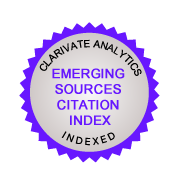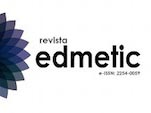Professional development and teachers continuing education: an analysis of the context of education in Angola
DOI:
https://doi.org/10.24310/innoeduca.2018.v4i1.4081Keywords:
Professional development, continous training, training competenceAbstract
The analysis of the actions of continuous training of teachers is a relevant question to know the level of training and professional development of teachers in schools. It also allows us to obtain data on updating professional skills that are fundamental to the exercise of an ever-changing profession.Therefore, this article aims to analyze the continuing education and professional development of teachers in private schools in Luanda, Angola.Thus, the research methodology on which this work is based is both quantitative and qualitative.In this way, the interview and the questionnaire were used as instruments to collect information. The main results are that there is no specific program of continuous training in private institutions, noting the absence of periodic balance sheets to analyze the level of professional development of teachers and other professionals involved. In conclusion, teachers in Angola are motivated to continue training, but there are certain institutional barriers that do not favor continuous training and professional development.Downloads
Metrics
References
Bisquerra, R. (1989). Métodos de investigación educativa: Guía práctica. Barcelona: CEAC.
Capistrán, R.W. (2018). Necesidades de formación docente de los maestros de Educación Artística a nivel Secundaria del Instituto de Educación de Aguascalientes. Artseduca, 19, 10-31. doi: 10.6035/Artseduca.2018.19.1
Flick, U. (2004). Introducción a la investigación cualitativa. Madrid: Morata.
Fox, D. (1987). El proceso de investigación en educación. Pamplona: EUNSA.
García, Z., & Aznar, I. (2017). La formación de educadores infantiles, un reto de innovación educativa en la educación superior. Innoeduca. International Journal of Technology and Educational Innovation, 3(2), 98-108. doi: 10.24310/innoeduca.2017.v3i2.2451
González, M.T., & Cutanda, M.T. (2017). La formación continuada del profesorado de enseñanza obligatoria: incidencia en la práctica docente y el aprendizaje de los estudiantes. Profesorado. Revista de currículum y formación del profesorado, 21(2), 103-122.
Gracia, L. (2017). Desenvolvimento profissional e carreira docente: diálogos sobre professores iniciantes. Acta Scientiarum. Education, 39(1), 79-89. doi: 10.4025/actascieduc.v39i1.29143
Hinojo, F.J., Cáceres, M.P., & Raso, F. (2013). Análisis de los Componentes Organizativos de Centros de Formación Profesional en España. Revista Latinoamericana de Ciencias Sociales, Niñez y Juventud, 11(2), 783-801.
Joana, M., Sola, T., & Aznar, I. (2014). Estudo das metodologias e estratégias do Programa de Português dos Cursos Profissionais de nível secundário: o caso do concelho de Almada. REICE. Revista Electrónica Iberoamericana sobre Calidad, Eficacia y Cambio en Educación, 12(2), 29-41.
Lessard-Hébert, M., Goyette, G., & Boutin, G. (2005). Investigação Qualitativa: Fundamentos e Práticas. Lisboa: Instituto Piaget.
Marconi, M.A., & Lakatos, E.M. (2010). Técnicas de pesquisa. São Paulo: Editora Atlas.
Martins, G.A., & Lintz, A. (2000). Guia para elaboração de monografias e trabalhos de conclusão de curso. São Paulo: Editora Atlas.
Moisés, J.V., Aznar, I., & Agreda, M. (2017). Liderança na Gestão Pedagógica: uma visão dos Directores das Escolas Secundárias. Journal for Educators, Teachers and Trainers, 8(1). 74-90.
Raso, F., Sola, T., & Hinojo, F.J. (2017). Satisfacción del profesorado de la escuela rural de la provincia de Granada (España) respecto a la organización escolar. Bordón. Revista de pedagogía, 69(2), 79-96.
Rodríguez, M.V., & Hinojo, F.J. (2017). Incidencia de los Programas de Formación Pedagógica en el Perfil de los Profesionales No Licenciados en la Facultad de Educación de UNIMINUTO. Formación Universitaria, 10(5), 17-28. doi: 10.4067/S0718-50062017000500003
Yin, R. (2005). Estudo de Caso. Planejamento e Métodos. Porto Alegre: Bookman.
Downloads
Published
How to Cite
Issue
Section
License
All contents published by Innoeduca. International Journal of Technology and Educational Innovation are subject to Creative Commons Attribution-Nocomercial-NoDerivatives 4.0 International License, whose complete text can be consulted at https://creativecommons.org/licenses/by-nc-nd/4.0/legalcode. Thus, copying, distribution, public communication, derivative works and commercial use of content are permitted as of the aforementioned issue provided that the source and the author of the text are cited.
It is the responsibility of the authors to obtain the necessary permits for images that are subject to copyright.

This work is licensed under a Creative Commons Attribution-NonCommercial-NoDerivatives 4.0 International License.








1.jpg)


242.png)







